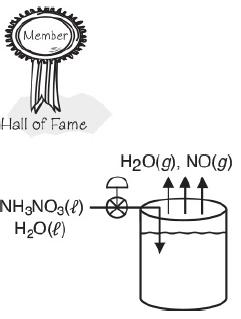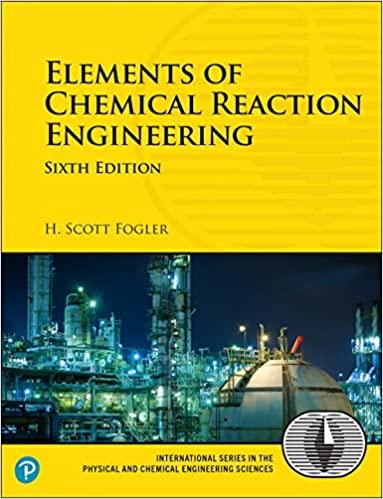The following is an excerpt from The Morning News, Wilmington, Delaware (August 3, 1977): Investigators sift through
Question:
The following is an excerpt from The Morning News, Wilmington, Delaware (August 3, 1977): “Investigators sift through the debris from blast in quest for the cause [that destroyed the new nitrous oxide plant]. A company spokesman said it appears more likely that the [fatal] blast was caused by another gas—ammonium nitrate—used to produce nitrous oxide.” An 83% (wt) ammonium nitrate and 17% water solution is fed at 200°F to the CSTR operated at a temperature of about 510°F. Molten ammonium nitrate decomposes directly to produce gaseous nitrous oxide and steam. It is believed that pressure fluctuations were observed in the system and, as a result, the molten ammonium nitrate feed to the reactor may have been shut off approximately 4 minutes prior to the explosion. A starving artist’s conception of the system is shown below.
1. Can you explain the cause of the blast?
2. If the feed rate to the reactor just before shutoff was 310 lbm of solution per hour, what was the exact temperature in the reactor just prior to shutdown? Use the data to calculate the exact time it took for the reactor to explode after the feed was shut off to the reactor.
Assume that at the time the feed to the CSTR stopped, there was 500 lbm of ammonium nitrate in the reactor at a temperature of 520°F. The conversion in the reactor is virtually complete at about 99.99%. Additional data for this problem are given in Problem 12-5C. How would your answer change if 100 lbm of solution were in the reactor? 310 lbm? 800 lbm? What if T0 = 100°F? 500°F? How would you start up or shut down and control such a reaction? Rather than shut off the total feed to the reactor, it should be diluted with pure water at a volumetric rate νw while reducing the ammonium nitrate reactant feed rate. Keep the same total volumetric feed ν0 rate and entering temperature. Choose a νw and plot the reactor temperature and composition as a function of time. At what time could you shut off the water feed safely?
Step by Step Answer:






